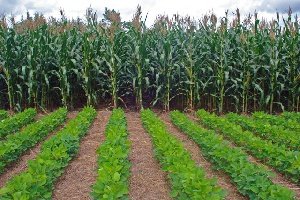Agriculture plays a significant role in climate change through methane emissions from livestock digestion, nitrous oxide emissions from fertilizer use, and changes in land use such as deforestation for agricultural and urban expansion.
These activities release stored carbon, exacerbating global warming. In Ghana, these effects are pronounced, with forest reserves dwindling due to legal and illegal logging, urbanization, and agricultural expansion.
This has led to biodiversity loss and reduced carbon sinks crucial for climate regulation.
To address deforestation, the government has established the Forestry Commission and implemented policies for sustainable forest management.
Recently, the Department of Agriculture in the Northern Region highlighted government investments in agricultural infrastructure, irrigation schemes, and mechanization to enhance food security and productivity.
Initiatives like Planting for Food and Jobs (PFJ) aim to improve farmer livelihoods and reduce import dependency. However, challenges persist, particularly illegal activities like logging and small-scale mining (“galamsey”), which undermine conservation efforts, contribute to biodiversity loss, soil erosion, and water pollution.
Ghana’s agriculture is increasingly vulnerable to climate change impacts such as erratic rainfall patterns and temperature extremes. To bolster resilience and food security, there is an urgent need to adopt climate-smart agricultural practices.
These include improved water management, agroforestry, and cultivating resilient crop varieties.
The Ghana Green Project
In response to these challenges, the Ghana Green Project was launched to combat deforestation, promote afforestation, and enhance environmental sustainability nationwide.
The initiative has already planted over thirty thousand diverse tree species to restore degraded environments, increase forest cover, and preserve biodiversity.
Despite these efforts, effective implementation faces obstacles like resource constraints and governance issues. Achieving sustainable development goals and protecting cultural heritage in the face of climate change requires coordinated efforts from policymakers, citizens, and the private sector. Cultural heritage plays a vital role in building resilience and transmitting traditional knowledge for a sustainable future.
Individual Contributions to Climate Change Mitigation and Heritage Conservation
Individual actions are crucial in mitigating climate change and conserving cultural heritage. Adopting sustainable practices such as reducing energy consumption, using renewable energy sources, supporting local conservation projects, and advocating for heritage preservation policies can have a significant impact.
In conclusion, Ghana’s efforts to combat climate change and conserve its forests are pivotal for achieving sustainable development goals. Effective policies, strengthened enforcement against illegal activities, and collaboration with international organizations are essential to enhance resilience and mitigate climate impacts. Education, awareness-raising, and capacity-building on climate change adaptation and mitigation are also critical for sustainable environmental management in Ghana.

